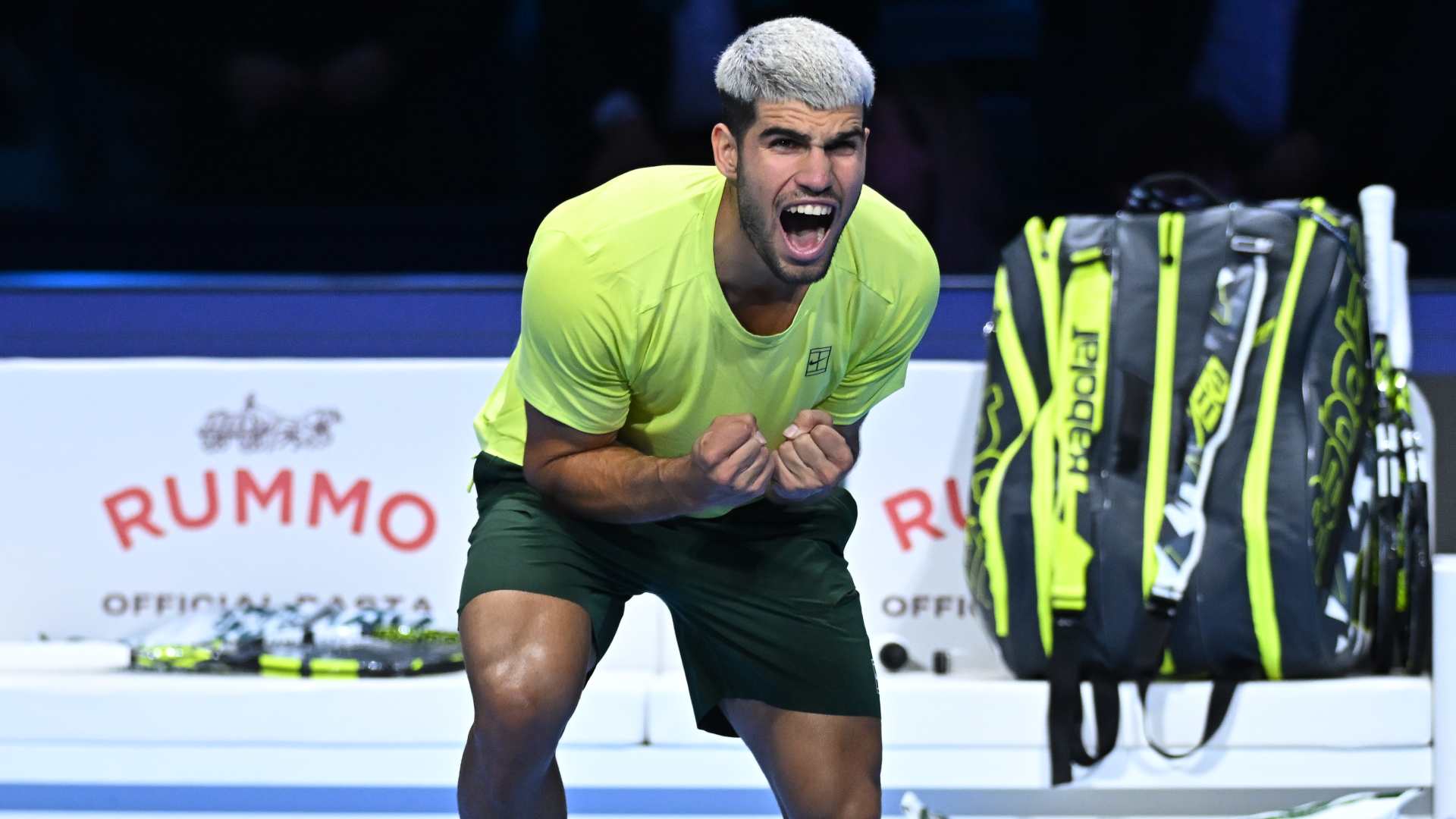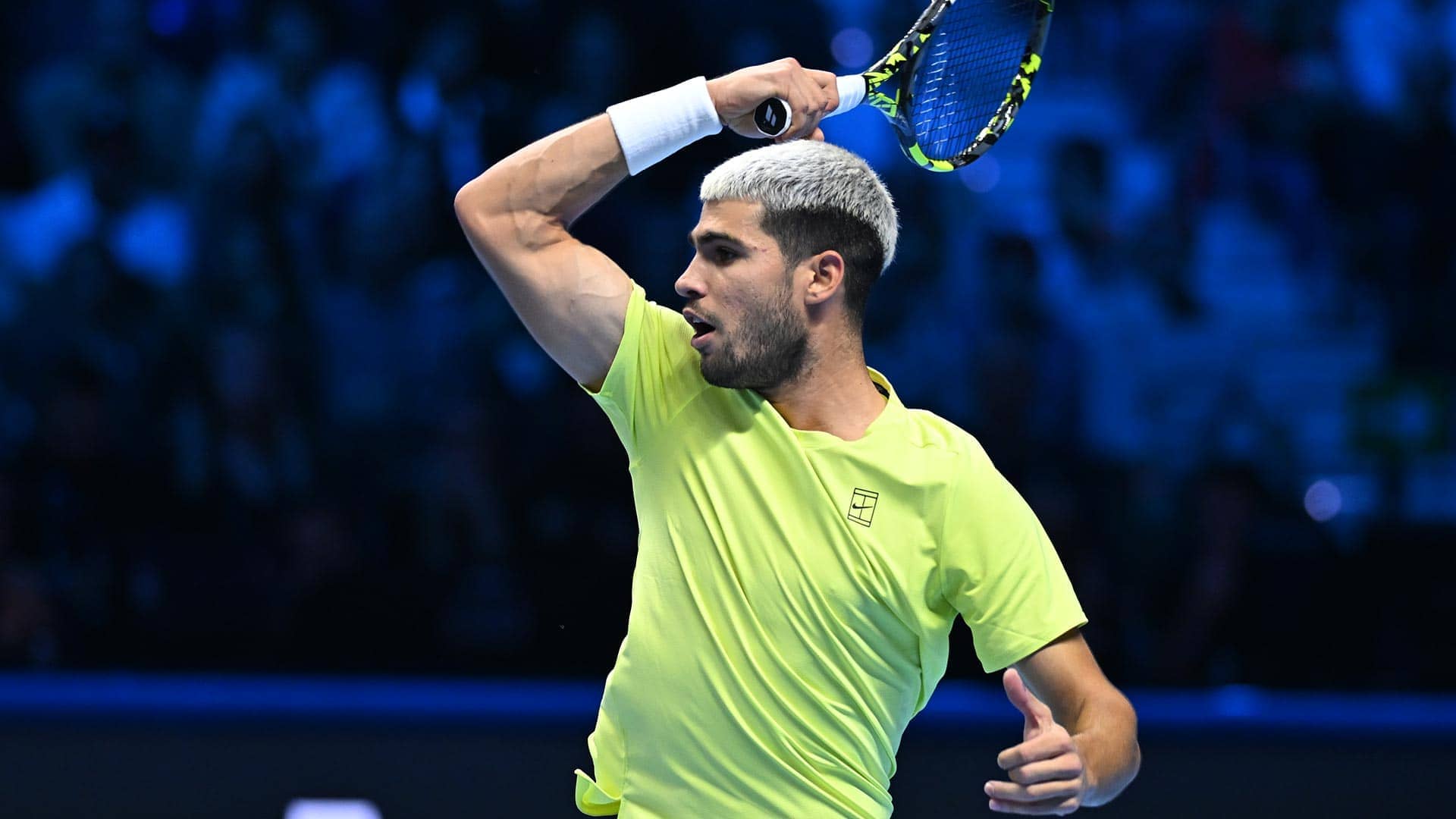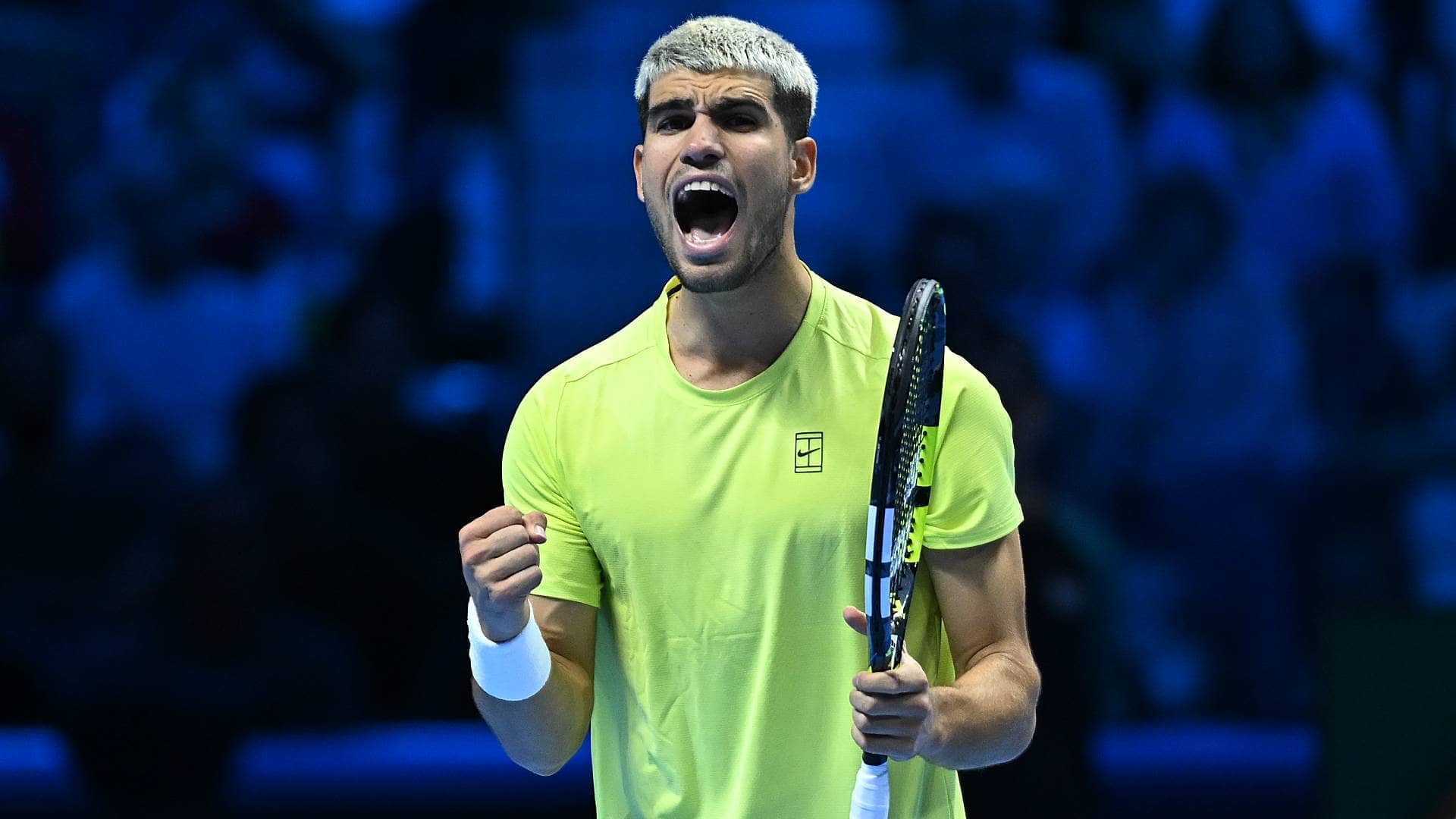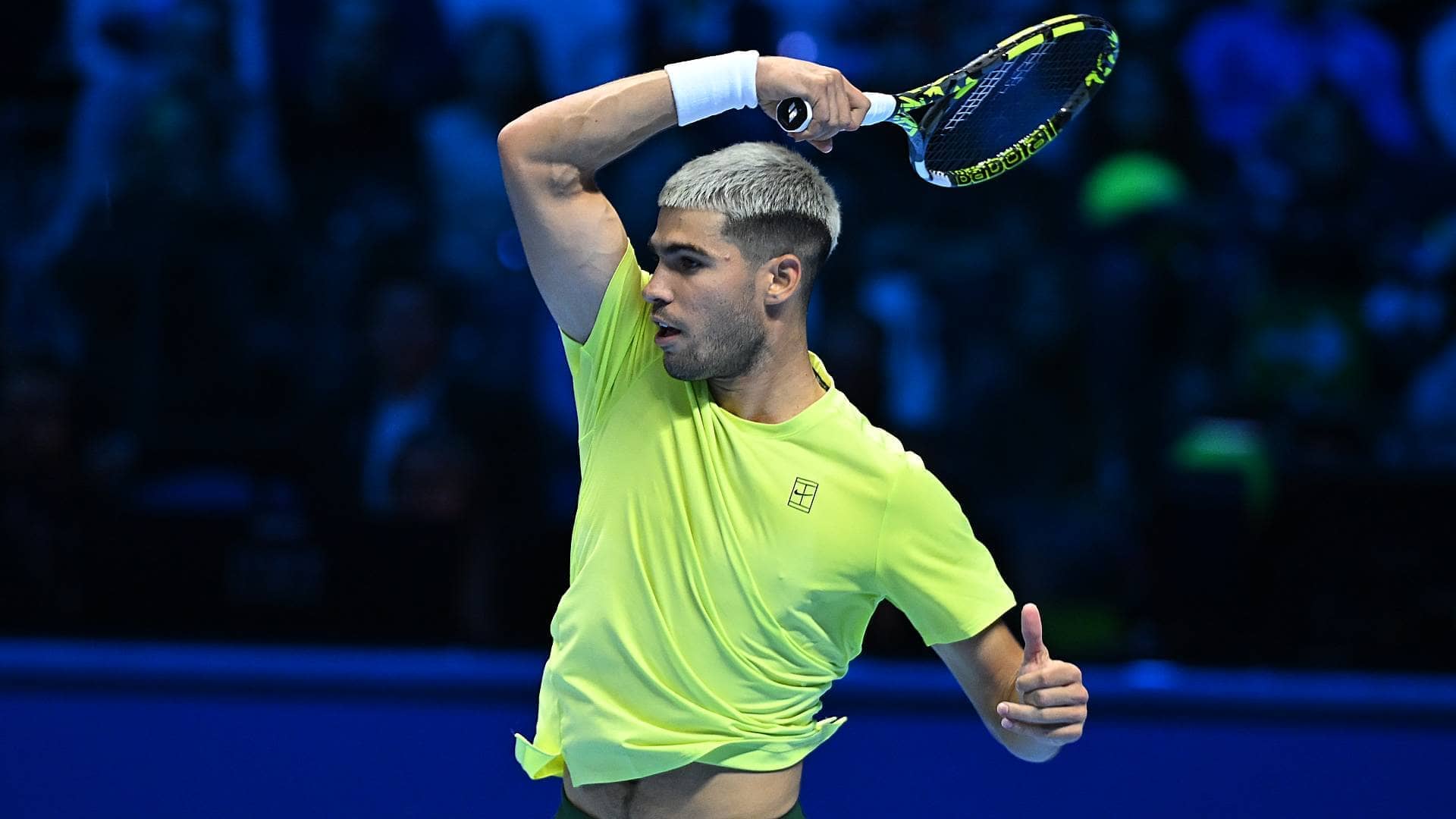Alcaraz locks in second year-end No. 1 amid Turin’s roar
In a Pala Alpitour humming with partisan cheers, Carlos Alcaraz outlasted Lorenzo Musetti to clinch his second ATP year-end top ranking, capping a season of forged consistency that turned early stumbles into unyielding dominance.

On November 14, 2025, the Nitto ATP Finals unfolded under the bright lights of Turin’s Pala Alpitour, where Carlos Alcaraz delivered a straight-sets victory over Lorenzo Musetti. This win not only propelled the Spaniard into the semifinals but sealed his second ATP Year-End No. 1 presented by PIF honor, a distinction he first earned in 2022. The moment arrived after a campaign marked by eight titles—a tour-leading total—that highlighted his evolution from a prodigy prone to lapses into a force who thrives under pressure, his explosive inside-out forehands and quick net rushes keeping opponents perpetually off-balance on every surface.
“We really are having a magnificent season,” said Alcaraz. “Consistency is something that has always been tough for me, and it’s something I’ve worked on as hard as possible. For example, in previous years, consistency in matches or tournaments has always let me down. We’ve tried to improve, and I think we’ve done it.
Forging consistency from early doubts
The season’s opening months tested Alcaraz with injuries and uneven play on hard courts, where his one–two punch sometimes faltered in crucial rallies, allowing returns to clip the baseline too comfortably. By spring, targeted training shifted focus to mental endurance alongside tactical drills, emphasizing crosscourt patterns to extend points and underspin backhands to disrupt aggressive serves. This groundwork paid dividends across tournaments, where he consistently reached finals or claimed trophies, transforming a shaky start into momentum that carried him through clay’s grinding slides and grass’s swift volleys.
Reaching 70 wins in a calendar year for the first time underscores this growth, a feat built not on perfection but on the ability to grind out holds with deep returns and sudden accelerations, even when his topspin lacked its usual bite. He reflects on how these adjustments allowed him to turn potential losses into competitive edges, forcing rivals to elevate their game just to stay in the fight. The Spaniard’s haul of eight titles, tracked by the ATP Win/Loss Index, stands as proof of a maturity that has redefined his approach to the tour’s relentless schedule.
Channeling energy in a hostile arena
Facing Musetti in Italy brought a wall of cheers that echoed through the arena, a stark contrast to the global affection Alcaraz usually commands, yet he absorbed it without flinching, using the noise to sharpen his focus on down-the-line passes and varied serve placements. The indoor hardcourt favored his athletic bursts, letting him counter the Italian’s slice backhands with heavy topspin that pushed exchanges deeper, opening angles for inside-in winners off short balls. Post-match, his restrained fist pump revealed a player attuned to the tournament’s tight margins, quickly shifting to recovery routines rather than lingering in the glow of victory.
“Obviously, I was with my team in the locker room, with people who are close to me and were able to come here. But I wasn’t able to celebrate much because I have a semi-final on Saturday,” Alcaraz explained. He topped the Jimmy Connors Group with a perfect 3-0 record, prioritizing ice and practice to ensure his legs held up for the knockout rounds. This discipline, honed over a year of surface transitions, turned the crowd’s fervor into just another layer of the tactical duel, much like how he navigates windy outdoor conditions with precise footwork.
“Ultimately, with players like Lorenzo [Musetti] and Jannik [Sinner] playing in Italy, playing this tournament... of course they will get the support, it’s normal,” he added. Staying locked in amid the chants allowed him to dictate tempo, blending defensive lobs with forward charges that shortened points before fatigue could set in. The six-time Grand Slam champion’s poise here echoed his broader evolution, where external pressures fuel rather than fracture his game.
Competing defines the champion’s edge
Alcaraz’s ability to compete fiercely, win or lose, has become his signature this year, evident in how he finds solutions mid-match—perhaps a timely slice to reset a rally or an aggressive inside-out forehand to seize control—regardless of his physical state. This mindset, refined through coaching emphases on pattern recognition and mental resets, ensures he gives himself chances even on off days, a trait that separates the elite from the rest. On the indoor hard of Turin, it manifested in sustained intensity, where his movement outlasted Musetti’s creativity, turning the semifinal path into a showcase of resilient tennis.
“Well, most of the time, not winning maybe, but competing, which is I think is the important thing in the end,” the Spaniard noted. “Ultimately, win or lose... there are also a lot of factors, but whether or not I’m feeling good, I know I’ll be able to compete and give myself the chance to win. “I think that’s what we’ve really improved. Obviously, we always try to find solutions in matches, but it is true that most of the time I know they will have to play at a great level, even when I’m not feeling good, if they want to beat me.”
“In every tournament I’ve either reached the final, won the title or had a good result. So that’s what I’ll take away from it, that I’ve improved in terms of consistency and, obviously, compared to the start of the year, which wasn’t the best, we managed to turn it around and I’d say that it is, without a doubt, the best season I’ve had so far, and there are still two tournaments to play.” With the year-end No. 1 secured, Alcaraz eyes the Nitto ATP Finals title, his tactical depth and mental steel positioning him to exploit any opening in the semifinals ahead.


